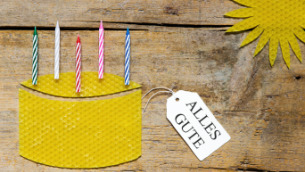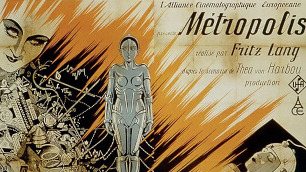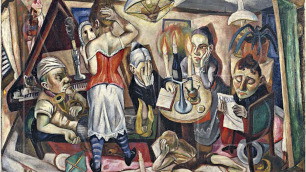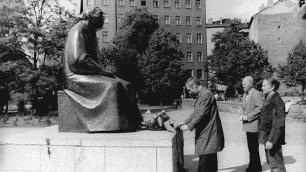| Jana: | Hallo Michael, willkommen zurück! Welcome back! |
| Michael: | Guten Tag! So, which gears are we talking about today? |
| Jana: | Um, gears? |
| Michael: | Yes, remember we used the analogy of a car? I’m ready to switch gears! |
| Jana: | Ah danke! Ja, fahren wir los – let's start driving. Well, it's our second driving lesson, and today we are leaving the parking lot and picking up the pace! |
| Michael: | Ich liebe Autos. |
| Jana: | OK, you love cars. You do know that’s a bit of a German stereotype, right? |
| Michael: | Natürlich, of course! But... Warum nicht? |
| Jana: | Actually, why not? Warum nicht? Good idea. We can always lighten up. |
| Michael: | Jana! Germans are never funny, no joke! |
| Jana: | That’s not true! Our language itself is hilarious in a lot of ways, we even have a lot of jokes. |
| Michael: | Okay, okay! I know a good one: A priest, a rabbi and a monk walk into a bar… |
| Jana: | No, not like that. I mean, we can eventually get into our favorite jokes too, but I was trying to use examples from our wonderfully contradictory language. |
| Michael: | How about this one: Wer nix wird, wird Wirt! |
| Jana: | Super! So, we will get back to that joke in a moment because you actually just used the first verb we're going to talk about: werden, which on its own means to become. But it can also be an auxiliary verb or "helping" verb, which is used together with other verbs. |
| Michael: | Ich werde die Nachrichten lesen. I will read the news. |
| Jana: | Hey! Gut! So, just as we learned last time, we conjugate the ending, but then there’s a new thing here: We can actually add verbs for this action taking place in the future. So, we conjugate werden and keep the action that will happen in the future in its unconjugated form that ends with -en. |
| Michael: | And the only thing you have to pay attention to is that it absolutely has to appear at the end. That's what keeps up the suspense! |
| Jana: | It’s true. Germans have a tendency to create very long contrived sentences, and then you have to make sure to catch the verb at the very end. |
| Michael: | Also, ich werde heute die Nachrichten lesen, dann Auto fahren, schwimmen, essen und am Ende schlafen. |
| Jana: | OK. Du wirst viel Spaß haben – you will have lots of fun! |
| Michael: | Und ich werde jetzt Tee trinken! |
| Jana: | Jetzt? |
| Michael: | Ja, jetzt. Now! |
| Jana: | Dann werde ich auch Tee trinken! |
| Michael: | Schön. You know why we need tea? Das Wetter wird kalt. |
| Jana: | Richtig, es wird kalt. It’s getting cold. Nice example of using yet another version of werden. |
| Michael: | And now we can reveal the meaning of my favorite joke! |
| Jana: | Genau! Exactly, wird means become, but the capitalized word Wirt means host, like a bartender or maître d'. |
| Michael: | Soooo… Wer means who, and nix is colloquial for nothing. Wer nix wird, he who doesn’t become anything… |
| Jana: | …wird Wirt – becomes a bartender. Typical classist thinking, in my opinion. |
| Michael: | See, I told you, Germans are not funny by definition, because we have to analyze everything! |
| Jana: | OK, you got me! I just feel bad for that guy. I guess we just really value our education! |
| Michael: | Speaking of which, can we shift into the next gear? Schneller fahren? |
| Jana: | Drive faster? Ja bitte! Let’s add separable verbs: Wir fangen an. The verb is anfangen, to begin, but the prefix an- has to move to the end of the sentence when we conjugate it. |
| Michael: | Ahh the suspense! |
| Jana: | Yes, because now we have to wait for the prefix to know what the speaker is doing. |
| Michael: | I love this! Here we go. Losfahren: Ich fahre los. Ich fahre mit Jana morgen los. |
| Jana: | Morgen means tomorrow, then you added one person and the time and finally the prefix los concluded the sentence. |
| Michael: | Yes, because I could’ve said. Jana und ich fahren morgen ab! |
| Jana: | Right. Abfahren means leave, as in going on a trip, whereas losfahren just means to start driving. |
| Michael: | And since this is about the news, let’s add a sophisticated word: zurücktreten – to resign. Die Premierministerin von England tritt zurück. |
| Jana: | Treten means to step, or to kick. Zurück means back, so literally zurücktreten means to step back. But we can also step forward – vortreten. |
| Michael: | Funny how some of the word stems could appear violent, like the verb treten, to kick, but auftreten, to perform, has a totally different meaning because of the prefix. Take the word schlagen, to hit. Ich schlage dich im Schachspiel. I beat you at chess. Aber ich schlage der Kollegin einen Schachzug vor – I suggest a chess move to my colleague. Schlagen means to hit, and vorschlagen means to suggest. |
| Jana: | Ha, that’s a nice comparison, and we could use it for the news as well. Wir schlagen der Premierministerin eine neue Arbeit vor. |
| Michael: | One of my favorites is the verb stehen – to stand. I think you can add any existing prefix to that and have totally unrelated meanings. Ich stehe früh auf, I get up early. |
| Jana: | Ah richtig! Ich verstehe, I understand! |
| Michael: | Ja, ich bestehe darauf! I insist on that! |
| Jana: | Du missverstehst mich! |
| Michael: | Wirklich? Du wirst das durchstehen. You will get through this. |
| Jana: | Okay, okay, genug! |
| Michael: | Enough? |
| Jana: | Ja, Michael. Let’s do one last verb that is useful here for this episode: hören – to listen. Ich höre klassische Musik. |
| Michael: | And with a prefix, I can say: Sie hören uns zu! You – or they – are listening to us. |
| Jana: | Oh, and listening can be on another level, too: Der NSA hört das Telefonat ab. The NSA is spying on the phone call. |
| Michael: | Oh nein! Wir hören jetzt mit diesem Spiel auf! |
| Jana: | Aufhören? Okay, let’s end it here. |
| Michael: | Well, that was fun. I hope everyone enjoyed it as much as I did. I bet you didn't even realize how many new German words we used! Sie werden hier viel lernen! |
| Jana: | Sehr gut! I agree, you can learn a lot while having fun! |
| Michael: | Oh and one last thing: Wiedersehen is a combination of the prefix wieder – again, and sehen, to see! Also, auf Wiedersehen! |
| Jana: | Danke, auf Wiedersehen! |

























